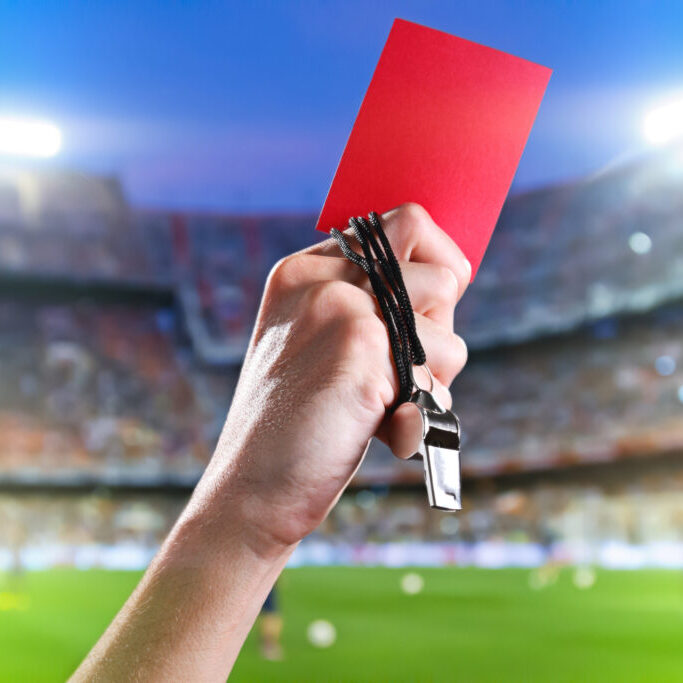Insights < BACK TO ALL INSIGHTS
Ifrah Law Interviews David Purdum on Sports Integrity
Ifrah Law Interviews David Purdum on Sports Integrity
By: Jake Gray
The stakes have never been higher for sports leagues and athletes to maintain the integrity of their contests. The mere possibility of thrown games, points shaven, or dishonest referee calls turns many bettors into pseudo-detectives, scrutinizing outcomes on behalf of their lost wagers.
We interviewed David Purdum, an investigative journalist who writes on the sports betting industry for ESPN, for his thoughts on sports integrity in a sports betting world.
Q: In your opinion, what are some of the most significant match-fixing events in modern sports history?
A:
The Black Sox scandal is the most notorious match-fixing event in American sports history. Gamblers conspired with members of the Chicago White Sox to allegedly comprise the 1919 World Series.
More recently, ex-NBA referee Tim Donaghy admitted to betting on games he officiated during the mid-2000s, and there have been occasional point-shaving incidents in college sports, primarily basketball, going back decades.
Q: We hear a lot about suspicious activity that may or may not indicate match fixing. Just last week, there was a lot of buzz around Temple and its poor performance against the spread. How often do these flagged games turn into actual, proven occurrences of match fixing?
A:
Games are flagged regularly for suspicious betting activity, but rarely result in proven match-fixing or point-shaving schemes. Some examples of suspicious betting activity include:
- A large movement in the spread, over/under total or odds that lacks any coinciding injury or weather information.
- An increase in betting interest on a lower-profile game that doesn’t customarily attract big bets or significant overall handle.
- Bettors, who are normally price-sensitive, continuing to bet on a team even after the odds have moved significantly.
Those types of examples warrant further examination but, by no means, prove a game was compromised. Without communications or participating witnesses, it is extremely difficult to prove a player, coach or referee was intentionally trying to alter a game for gambling purposes.
Q: In your role as an investigative journalist for ESPN, what do you do to investigate these issues?
A:
It’s certainly not easy. My approach has always been slow, thorough, and cautious when reporting on match-fixing allegations. I attempt to speak to sources on all sides, but rarely is there enough substance and evidence to substantiate any claim of nefarious activity.
Q: How cooperative are the relevant leagues like NCAA and others with your inquiries?
A:
The NCAA has a policy of not commenting on investigations, similar to many law enforcement agencies. State gaming regulators are often helpful and refreshingly transparent. Massachusetts Gaming Commission holds its meetings in a public venue, for example.
Q: There was a game you mentioned where a running back was alleged to have received $500 bucks to do what exactly?
A:
Yes, a running back for Toledo University admitted in court to accepting a $500 bribe to fumble in a 2005 bowl game to help a gambler. It was part of a wide-ranging match-fixing, point-shaving scandal involving Toledo and a Detroit-area gambler.
Q: Do you think the likelihood of this type of vulnerability is mitigated by new NIL opportunities for amateur athletes?
A:
I think NIL deals, like any increased income, certainly add a layer of protection to players, who may have been more easily compromised if they were struggling for spending cash.
Q: Oftentimes we think of match fixing as centered on players and perhaps even coaches or owners, but what role have referees played in scandals?
A:
It doesn’t get much worse than the Tim Donaghy scandal referenced above – a referee betting on games they officiate is as ugly as it gets. Officials in soccer and tennis also have been found to have compromised matches by insincere decisions.
Q: What kind of red flags indicate that a referee may be conflicted?
A:
The red flags would be similar to those of a player or coach being conflicted and likely would be first seen in the betting market. Eventually, word of the scheme would begin to spread, and bettors would pounce, moving the lines and totals erratically and causing bookmakers to become suspicious.





